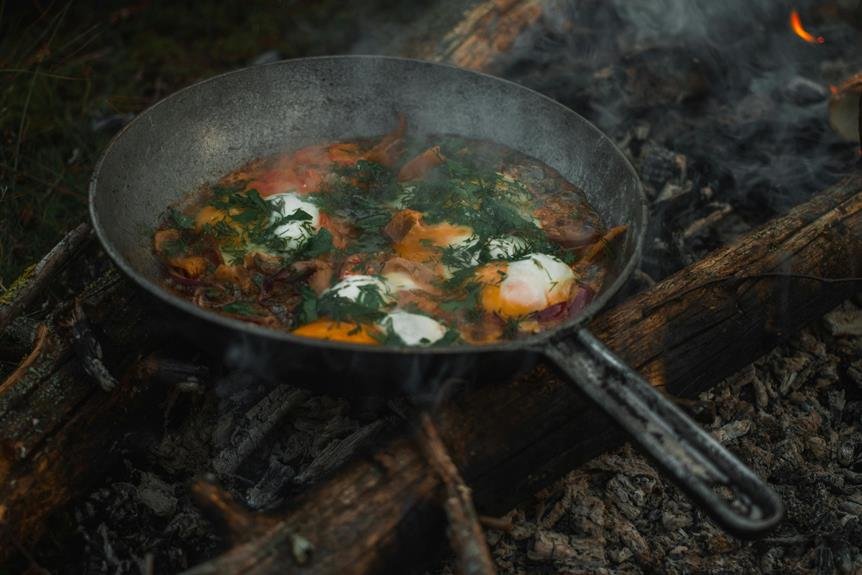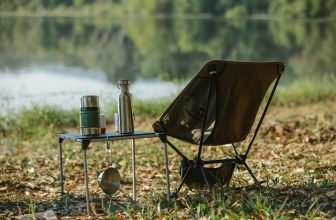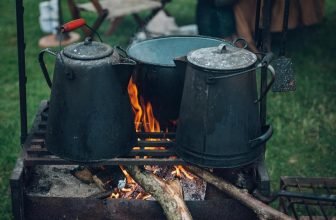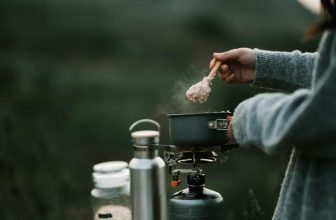
When venturing into the wilderness, selecting the appropriate camping cookware can make or break your outdoor culinary experience. The right tools can elevate your meals under starlit skies, but with so many options available, where do you begin? Remember, your choice of cookware should align with your camping style, preferences, and the dishes you plan to prepare. So, before you pack your bags for the next adventure, let's navigate the realm of camping cookware to ensure your meals are as satisfying as your surroundings.
Factors to Consider When Choosing Camping Cookware
When selecting camping cookware, prioritize durability and versatility to ensure a reliable and practical cooking experience. Look for cookware that can withstand outdoor conditions and frequent use without easily getting damaged. Opt for materials like stainless steel or cast iron that are known for their robustness and longevity. Versatility is key when camping, so choose cookware that can be used for various cooking methods, such as boiling, frying, or even baking if needed.
Consider the size and weight of the cookware, as you'll need to transport it to and from your campsite. Lightweight options are ideal for backpacking trips, while larger groups may require bigger pots and pans. Handles that are foldable or detachable can help save space in your backpack or camping bin.
Don't forget to check if the cookware is compatible with your camping stove or if it can be used directly over a campfire. Ensuring compatibility will make cooking much more convenient during your outdoor adventures. By focusing on durability, versatility, size, weight, and compatibility, you can select the perfect camping cookware for your needs.
Types of Camping Cookware Materials
Consider the types of materials used in camping cookware to ensure durability and suitability for outdoor cooking adventures. When selecting camping cookware, you'll encounter various materials, each with its own set of benefits and drawbacks.
Aluminum is a popular choice due to its lightweight nature and excellent heat conduction, making it ideal for quick and even cooking. However, it can dent or scratch easily.
Stainless steel cookware is more durable and scratch-resistant, but it's heavier to carry around.
Titanium is another lightweight option that's incredibly strong and resists corrosion, perfect for backpackers looking to minimize weight.
Cast iron cookware is known for its superior heat retention and even cooking, but it's heavy and requires proper maintenance to prevent rust.
Non-stick coatings are convenient for easy cleanup but may scratch over time.
Ultimately, your choice of material will depend on your camping style, cooking preferences, and the importance you place on factors like weight, durability, and maintenance.
Essential Cookware Pieces for Camping
For camping adventures, essential cookware pieces play a crucial role in ensuring you can prepare delicious meals outdoors efficiently.
When packing for your camping trip, it's important to include versatile items that can handle various cooking methods. A sturdy camping stove or portable grill is a must-have for heating up meals and boiling water.
A lightweight but durable camping pot is essential for cooking soups, stews, or pasta. Additionally, a frying pan or skillet can be used for cooking eggs, bacon, or pancakes over the fire.
Don't forget about utensils like a spatula, tongs, and a cooking spoon to assist you in the meal preparation process. A sharp knife and cutting board are handy for chopping ingredients.
Lastly, to enjoy a hot beverage in the great outdoors, consider bringing along a small kettle or coffee press.
Tips for Maintaining Camping Cookware
To keep your camping cookware in top condition, regularly clean and inspect each piece after every use. Start by washing your cookware with mild soap and hot water, avoiding harsh scrubbers that could damage the surface. Ensure all residues are removed to prevent any buildup that might affect the taste of your food or the longevity of the cookware. After cleaning, make sure to dry each piece thoroughly to prevent rust or corrosion, especially if your cookware is made of metal.
Additionally, consider using a protective coating like oil or seasoning on cast iron cookware to maintain its non-stick properties and prevent rust. Store your camping cookware in a dry place to avoid moisture buildup, which can lead to mold or rust over time. Inspect your cookware regularly for any signs of wear, like chipped enamel or loose handles, and address these issues promptly to prevent further damage.




